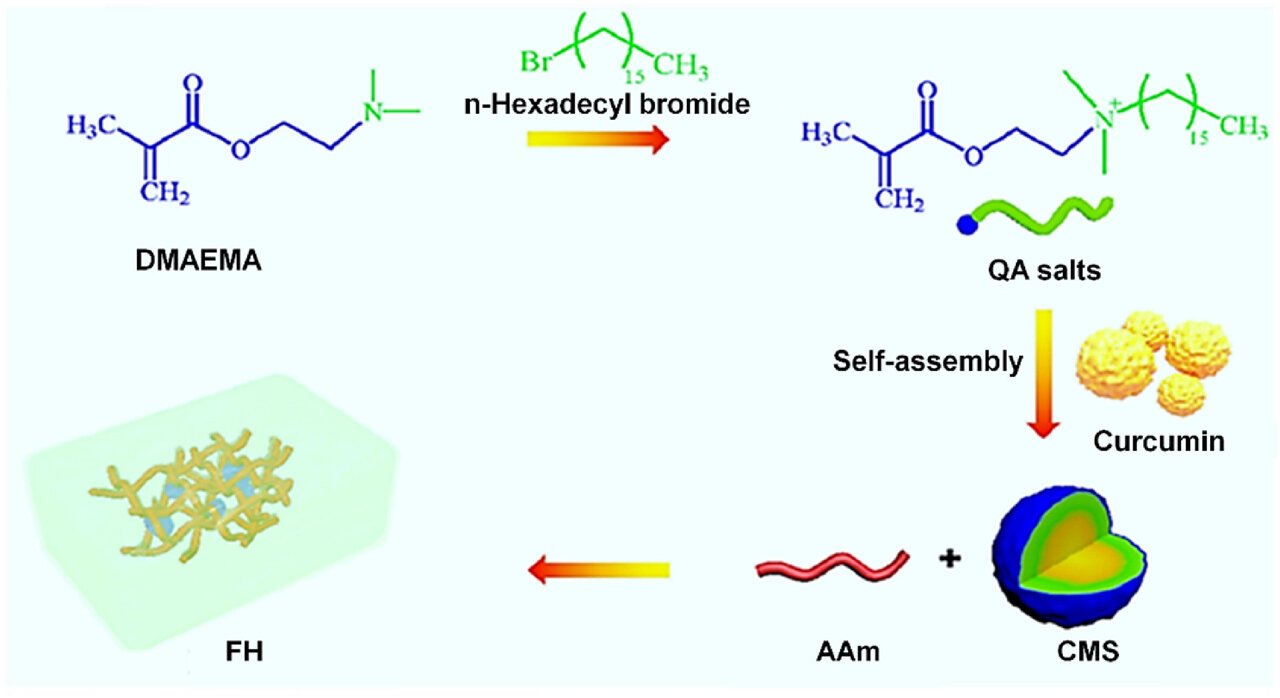Stimuli-responsive fluorescent hydrogels (FHs) are highly promising for information encryption and anti-counterfeiting applications, offering enhanced security levels through vibrant visual displays. However, the development of environment-friendly, low-cost, and scalable methods for producing stimuli-responsive FHs remains a challenge.
Curcumin, a natural and sustainable material, has garnered attention for its therapeutic potential in combating conditions such as diabetes, inflammation, and cancer. While curcumin is pH-sensitive and fluorescent, its weak fluorescence in polar water limits its utility as a fluorescent agent in hydrogels.
A recent study in Green Chemical Engineering presents a novel approach to fabricating robust fluorescent hydrogels by utilizing curcumin as a fluorescent agent. The researchers loaded curcumin into amphiphilic quaternary ammonium (QA) micelles, resulting in hydrogels with excellent mechanical properties and pH-responsive color and fluorescence. This dual functionality enables effective anti-counterfeiting measures.
The scalable method proposed for producing pH-FHs demonstrates significant potential in manufacturing materials for information encryption and anti-counterfeiting applications.
Co-corresponding author Xiubin Xu, affiliated with the School of Chemistry and Chemical Engineering at Guangzhou University in China, explains, “Compared to conventional fluorescent agents, curcumin offers natural, biocompatible, and sustainable properties, making it a compelling option for scalable applications like anti-counterfeiting. Through our work, we successfully developed fluorescent hydrogels utilizing curcumin as the fluorescent agent, showcasing favorable mechanical properties, anti-fatigue performance, and intelligent fluorescence response to ammonia gas and formaldehyde gas.”
“These hydrogels also possess information storage-rewriting capabilities and dual anti-counterfeiting functionalities. We believe that our strategies and accomplishments will facilitate the design of robust and intelligent FHs for information encryption and anti-counterfeiting applications.”
Source: Green Chemical Engineering

